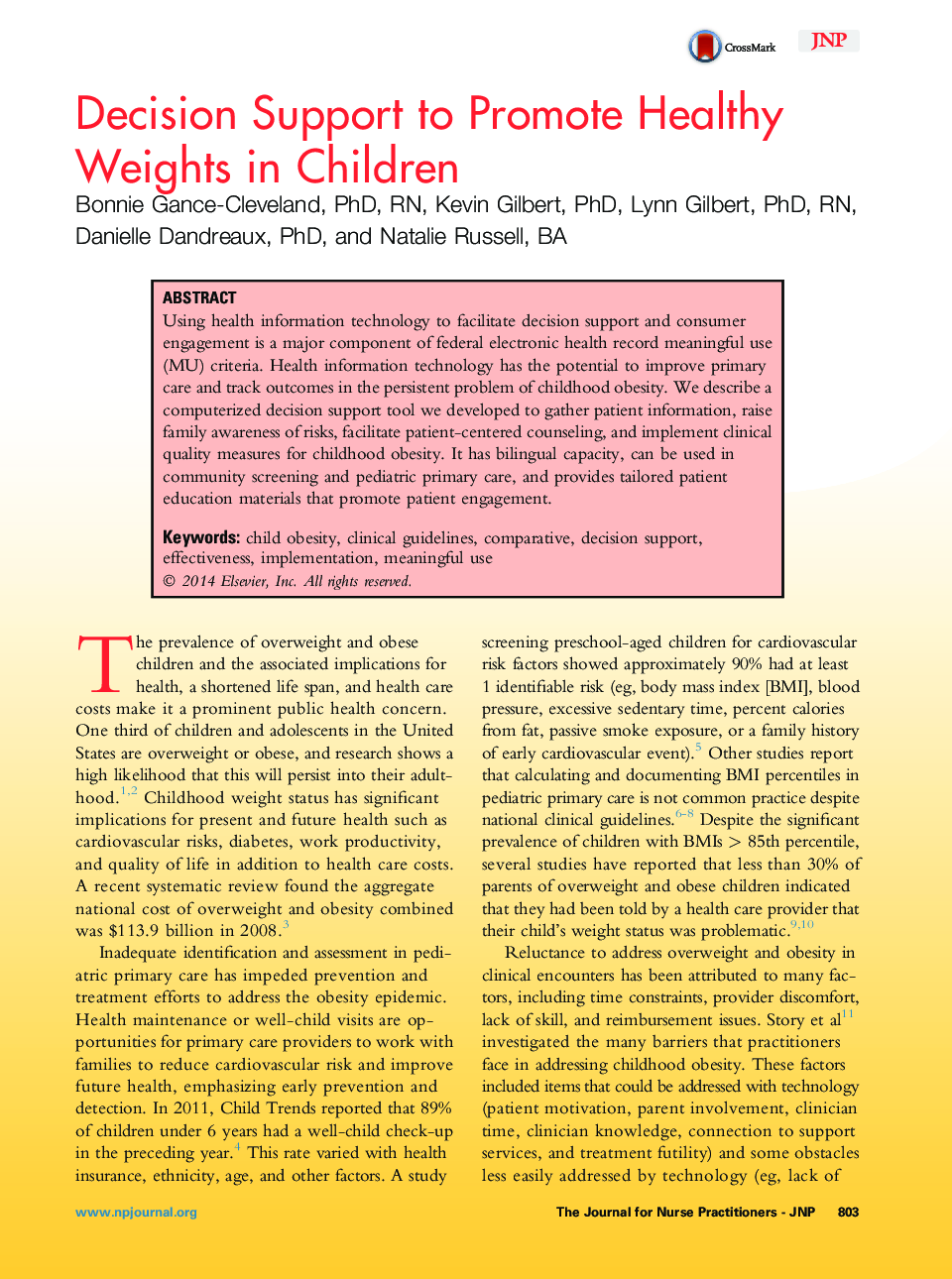| Article ID | Journal | Published Year | Pages | File Type |
|---|---|---|---|---|
| 2663530 | The Journal for Nurse Practitioners | 2014 | 10 Pages |
•Health information technology can help providers implement guidelines to improve evidence-based practice.•Meaningful use requires the integration of technology to improve clinical care.•Childhood weight status has significant implications for present and future health.•Documenting body mass index percentiles in pediatric primary care is not common practice.•A decision support system can improve risk identification by school-based health center providers.
Using health information technology to facilitate decision support and consumer engagement is a major component of federal electronic health record meaningful use (MU) criteria. Health information technology has the potential to improve primary care and track outcomes in the persistent problem of childhood obesity. We describe a computerized decision support tool we developed to gather patient information, raise family awareness of risks, facilitate patient-centered counseling, and implement clinical quality measures for childhood obesity. It has bilingual capacity, can be used in community screening and pediatric primary care, and provides tailored patient education materials that promote patient engagement.
